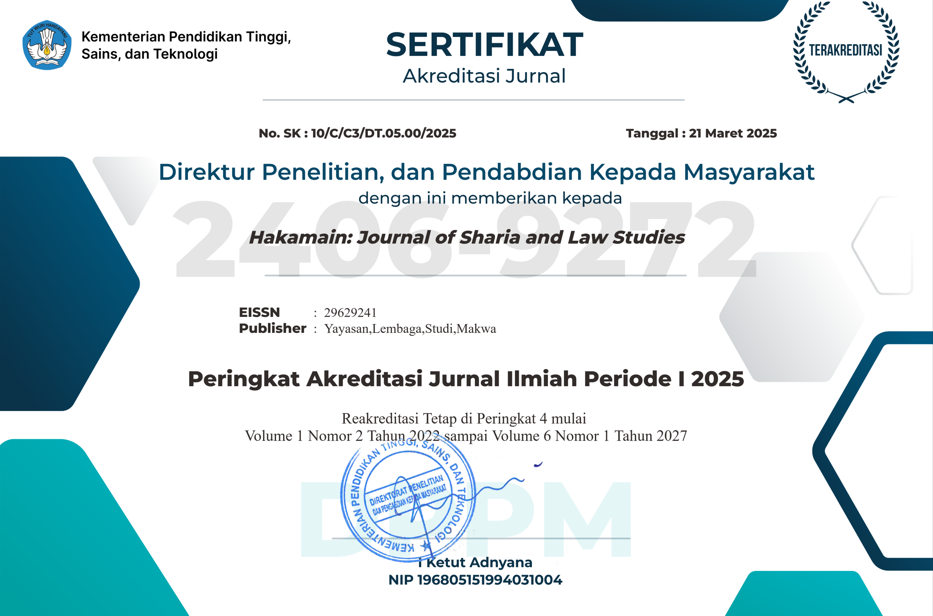The Existence of Customary Criminal Justice in Resolving Moral Offenses in Mentawai
DOI:
https://doi.org/10.57255/hakamain.v4i1.1452Keywords:
Sexual Harassment, Customary Law, Justice, Criminal LawAbstract
This study investigates the existence and practice of customary criminal justice in resolving moral offenses within the Mentawai community. Using a field research design with a qualitative approach, primary data were collected through direct observation, in-depth interviews with customary leaders (sikerei), village elders, and community members, as well as focus group discussions conducted in several Mentawai villages. Secondary data were also gathered from local records, case documentation, and previous studies to provide supporting evidence. The findings indicate that the Mentawai customary justice system remains actively practiced and widely trusted by the community, particularly in cases involving sexual harassment, adultery, and premarital relations. Sanctions applied through tulou emphasize reconciliation, compensation, and restoration of social harmony rather than strict punishment. Observations show that these customary mechanisms are perceived as more accessible, effective, and socially relevant compared to the formal criminal justice system, which is often viewed as distant and bureaucratic. The research also highlights the processes, interactions, and roles of community members, demonstrating how customary justice functions as a practical, community-based mechanism for resolving moral disputes. Field evidence reveals the enforcement procedures, decision-making practices, and participation of key actors in the customary process. The study contributes empirically by documenting the ongoing use and social acceptance of indigenous legal practices in Mentawai. Its findings provide valuable insights into how customary criminal justice operates in everyday life, offering data-driven perspectives for understanding the functioning, resilience, and social legitimacy of local legal institutions.
Published
How to Cite
Issue
Section
Citation Check
License
Copyright (c) 2025 Hidayatul Azizah, Arif Rahmat Risky, Larasati Khoirunnisa, Sahrizal, Ladisa Oktari Matahari

This work is licensed under a Creative Commons Attribution-ShareAlike 4.0 International License.






